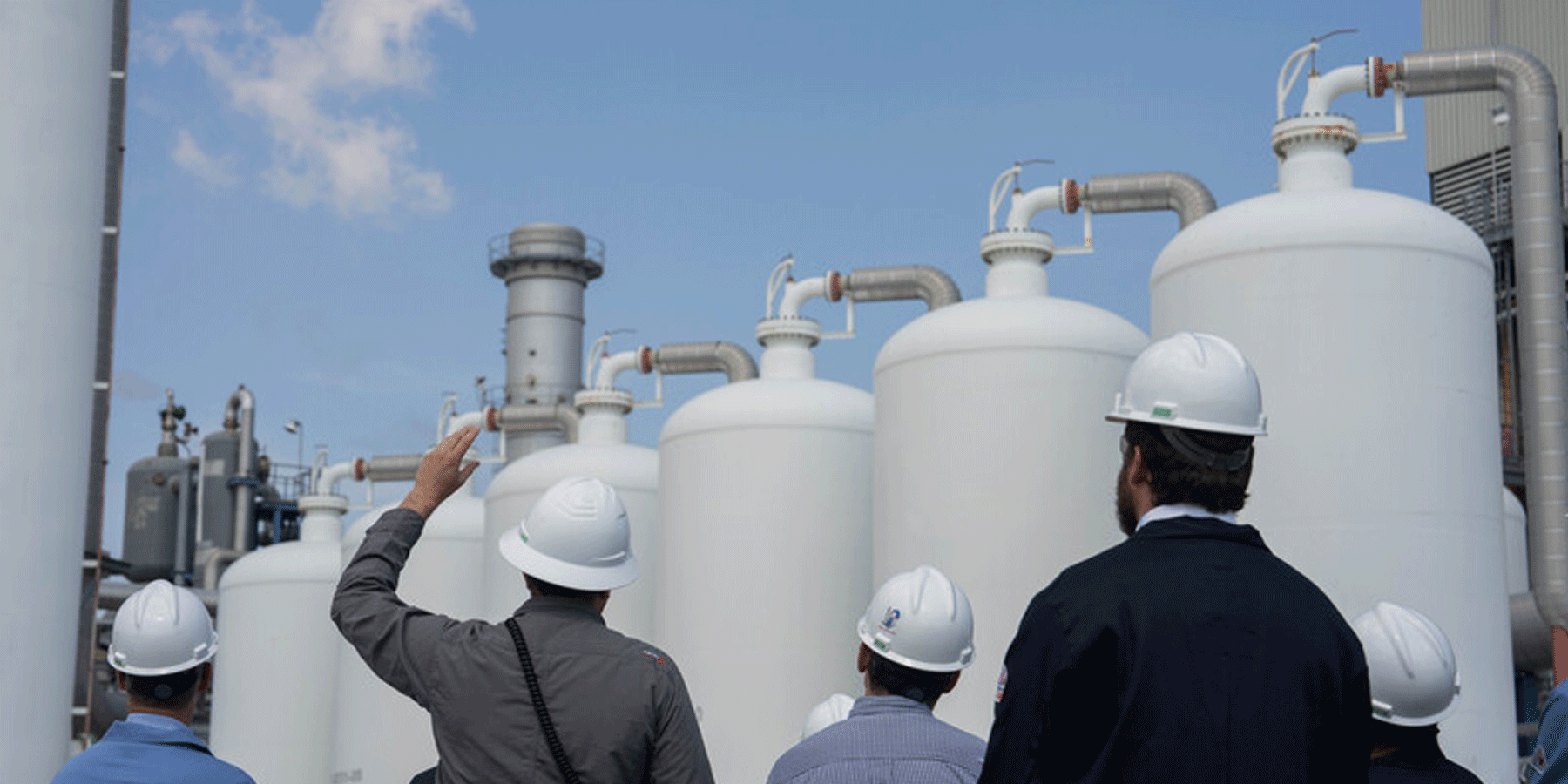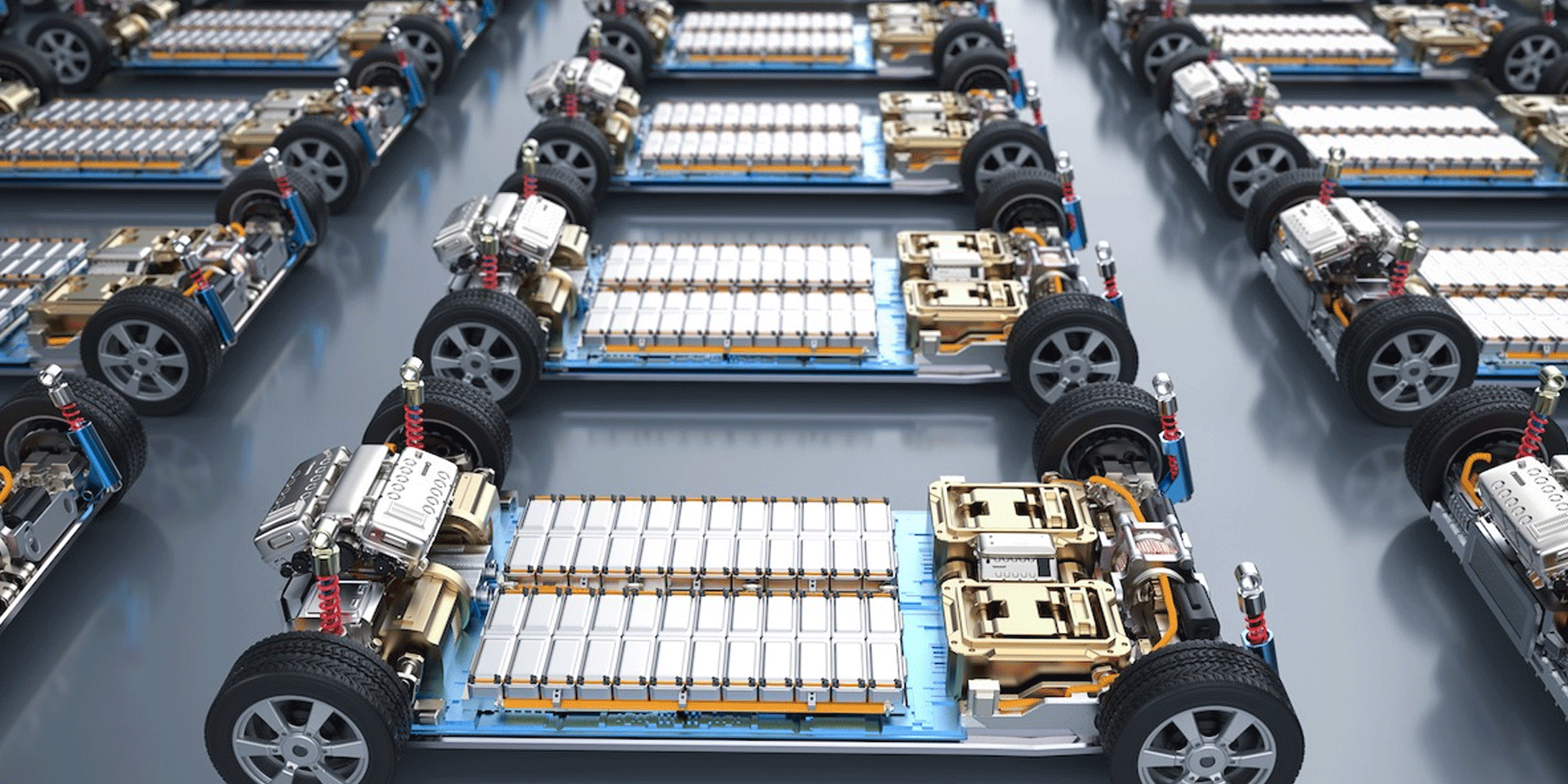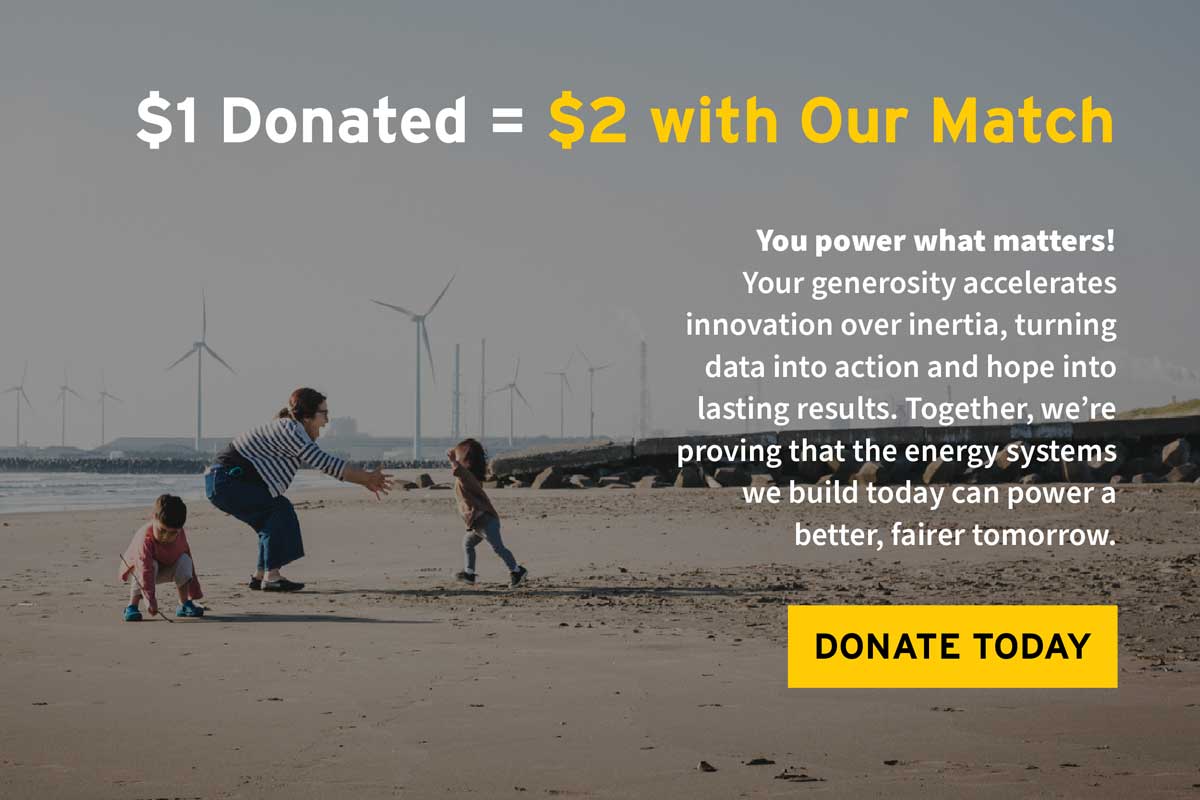Winter 2025
IMPACT REPORT
RMI’s vision of a clean energy future commits us to THINK bigger, DO boldly, and SCALE globally.
Download
Manage your subscriptions to RMI emails. Let us know your specific interests, and we'll keep you updated accordingly.
IMPACT SPOTLIGHT

WIRE: Empowering Women to Lead the Clean Energy Transition
The Women in Renewable Energy (WIRE) Network, hosted by RMI, is designed to empower women in the renewable energy sector, particularly in island nations where energy challenges are acute. WIRE addresses the underrepresentation of women in energy leadership by fostering mentorship, technical training, and peer learning, equipping women to drive the clean energy transition in their communities. This helps ensure women’s perspectives and talents play a critical role in shaping the industry’s future, especially in areas highly vulnerable to climate change.
continue reading...
WIRE’s mentorship program selects 12 women annually to participate in a year-long initiative that combines technical training, interpersonal skill development, and peer support. These mentees gain expertise to influence energy systems and policies while fostering a strong sense of community. The program has a ripple effect, empowering participants and inspiring change within their organizations and communities.
In September 2024, the WIRE Network held its annual convening in Bridgetown, Barbados, a milestone event celebrating progress in advancing women’s energy leadership. Over three days, participants engaged with regional energy leaders, including a visit to the Barbados Fair Trade Commission. CEO Marsha Atherley-Ikechi shared her inspiring journey, emphasizing the importance of self-belief in breaking barriers and highlighting the impact of women in decision-making roles within Barbados’s energy sector.
The convening also included a tour of Solar Dynamics, the Caribbean’s first solar company, founded in 1972. The visit showcased the region’s renewable energy advancements, such as solar water heaters and atmospheric water generators, and the critical role women play in driving these innovations. Participants also had opportunities to strengthen networks, share experiences, and discuss strategies for overcoming energy challenges in their regions.
These efforts in the Caribbean are part of a broader mission to address systemic challenges in the global energy sector. Women remain underrepresented in energy leadership, particularly in technical and decision-making roles. By creating space for mentorship and collaboration, WIRE is helping to close this gap and ensure women have the resources to lead impactful energy projects.

RMI plays a central role in the success of WIRE, providing technical support, fostering connections between stakeholders, and amplifying women’s leadership in renewable energy. Through this partnership, women leaders are equipped to implement transformative energy solutions, benefiting their organizations and communities alike.
The success of the Barbados convening exemplifies the power of mentorship and collaboration. Participants like Sheena Gosine, who described WIRE as “life-changing,” reflect the program’s impact in fostering a sense of purpose and empowerment among women leaders.
As WIRE continues to grow, it sets a precedent for inclusive energy transitions, paving the way for a more sustainable and equitable future. By investing in women’s leadership, RMI and WIRE are ensuring that island nations and other vulnerable regions are not left behind in the global shift to clean energy. This model of mentorship, collaboration, and empowerment is driving real change in renewable energy systems across the Caribbean and beyond.
SUPPORTER SPOTLIGHT

“By research and science, by education and negotiation, by example, RMI helps us to make long-term economic sense by making long-term environmental sense.”
— CHUCK JAFFEE, RMI DONOR
For 45 years, Chuck Jaffee combined his love of movies with his passion for clean energy and climate action in his Oscar-focused newsletter, The CampChuck Reviewer. For a minimum $5 donation to RMI or local food banks, Chuck's dedicated subscriber base received his annual predictions for the Oscars' top six categories. Chuck then generously matched these contributions dollar-for-dollar, amplifying the impact.
In one memorable issue, Chuck encouraged his readers, writing, "OK, you don't have millions. At whatever level, we can all give to and support practical/tactical ways to turn our only earth ship around." His influence led many subscribers to become regular donors to RMI.
After Chuck's passing in late 2024, RMI received numerous gifts in his honor, bringing the cumulative giving inspired by his newsletter and personal connections to over $270,000 from more than 100 donors. This remarkable legacy exemplifies how passion and friends can unite to create meaningful, lasting impact. We are deeply grateful to Chuck for his vision, dedication, and enduring contributions.
OUR FUTURE NEEDS YOU.
Call it a gift.
We call it the momentum behind our zero-carbon future.
RMI's impact is directly tied to generous donations from people like you. As a nonprofit, we generate 90 percent of our funding from philanthropy. Please consider a recurring gift, which provides sustained support we can rely on to accelerate the energy transition.
THINK

Modeling Industrial Decarbonization
Heavy industry and transport sectors such as steel, chemicals, and aviation account for 23 percent of US emissions. New RMI research highlights Houston’s unique potential to lead US industrial decarbonization, leveraging its infrastructure, skilled workforce, and energy capacity. Partnering with the Houston Energy Transition Initiative, RMI is accelerating progress in the Gulf Coast region. With a thriving clean tech ecosystem and significant investments, Houston is poised to serve as a global model for uniting regional stakeholders to drive industrial decarbonization.

Helping Utilities Invest in EV Trucks
To prepare its grid for demand from electric trucking fleets, Baltimore Gas and Electric (BGE) worked with RMI and Atlas Public Policy to analyze the economics, vehicle behavior, and policies driving commercial fleet electrification. By modeling how many electric vehicles BGE’s grid will need to support in the coming decades and where demand will materialize, this localized vehicle electrification model will help the utility plan and prepare for infrastructure needs that maximize the benefits of fleet electrification for its 1.3 million customers.

A Roadmap to an Energy-Independent Mobility Sector in India
RMI’s India at 2047 report outlines a path to energy independence in the road transport sector, driven by 100 percent clean-fuel vehicles. Key recommendations include accessible infrastructure, innovative financing, and a circular economy for EV batteries, offering a global blueprint for a healthier and more prosperous future.

Contrail Solutions: Charting a Path to Cleaner Skies
RMI’s Contrail Impact Task Force launched Understanding Contrail Management: Opportunities, Challenges, and Insights, a new comprehensive report that details current scientific understanding, best practices from real-world trials, and next steps for scaling contrail avoidance. The report, developed in partnership with research institutions, airlines, and other global stakeholders, provides a clear path for the aviation industry to combat the warming impacts of contrails.

Building a Circular Battery Supply Chain
RMI, in collaboration with the World Economic Forum and the Global Battery Alliance, released Powering the Future: Overcoming Battery Supply-Chain Challenges with Circularity. The report highlights the environmental and socio-economic impacts of current battery supply chains, emphasizing the need for systemic changes to foster a circular battery economy. It calls for harmonized policy frameworks, investments in workforce development, innovative research into sustainable battery design, and more to enhance resilience and sustainability in the battery value chain.
DO

Pinpointing Earth's Methane and CO₂ Super-Emitters from Space
Launched in August 2024, Tanager-1 is the Carbon Mapper Coalition’s inaugural satellite designed to detect and monitor methane and carbon dioxide super-emitters globally. Developed by Planet Labs PBC with NASA Jet Propulsion Laboratory technology, Tanager-1 employs advanced hyperspectral imaging to identify significant emissions from fossil fuels, waste, and agriculture. Within Tanager-1’s first few months in orbit, Carbon Mapper detected over 400 emission plumes worldwide — attributable at the facility and even equipment level — providing critical data to inform mitigation efforts and reduce greenhouse gas emissions.

Clean Energy Academy Helps Projects Receive Federal Funding
RMI and America Is All In ran the first Clean Energy Academy, a cohort program for 20+ universities, healthcare groups, cultural institutions, other nonprofits, and businesses. Participants learned which federal funding opportunities* they could pursue for their clean energy projects and how to leverage them, leading to the successful completion of solar, EV charger, geothermal, and other installations and hundreds of thousands to millions saved per organization.
* Programs like this may be at risk if the US administration pulls back funding. RMI remains committed to advancing clean energy and driving emissions reductions in the United States and globally.

Startups Accelerating Industrial Decarbonization
Third Derivative, RMI’s global climate tech accelerator, recently launched the Industrial Innovation Cohorts to rapidly advance critical climate solutions in the steel, cement, and chemical industries — sectors responsible for more than half of global industrial emissions. Third Derivative will source, select, and support an inaugural cohort of 25–30 startups, equipping them with the resources and expertise needed to decarbonize these sectors.

$1.49B for Climate Resilience Projects
The Climate Finance Access Network — a global network founded and hosted by RMI — aims to unlock access to climate finance in developing countries. The network’s global pipeline, representing projects that are vetted and ready for investment, spans mitigation, adaptation, and crosscutting projects, with a strong focus on meeting developing countries’ climate and energy priorities while building economic resilience. Projects developed by locally recruited and embedded CFAN advisors cut across key sectors, including sustainable energy, water, forests, green cities, waste management, and the blue economy, which focuses on marine and freshwater environments. In just two years, CFAN’s first Pacific cohort of finance advisors developed a pipeline of over 60 projects, concept notes, and technical assistance initiatives totaling $826 million. A second Pacific cohort, launched in March 2024, has already built a $178 million pipeline. In early 2024, CFAN expanded to the Caribbean, where a cohort of eight advisors used in-depth consultations with country stakeholders to identify a $486 million prospective pipeline with over 20 project concepts. Globally, CFAN has secured $76.6 million in climate investments, with a total pipeline representing nearly $1.5 billion.

Driving Shipping’s Zero-Carbon Future
Book and claim is a chain-of-custody model that separates a product from its sustainability benefits and transfers them to another party through a registry. This enables customers to claim the environmental benefits of a product without physically receiving it. Katalist, RMI, and Mærsk Mc-Kinney Møller Center for Zero Carbon Shipping at COP29 to accelerate the shipping industry’s decarbonization journey. The platform connects shipping companies powering their fleets with lower-emissions fuels with cargo owners seeking to create more sustainable supply chains. This model encourages increased investment in novel fuel technologies and helps send a strong demand signal to fuel producers.
SCALE

Em-powering Rural America
Rural electric cooperatives, which provide power to millions of Americans, face significant challenges in transitioning to clean energy, including limited resources, complex funding landscapes, and aging infrastructure.
RMI supported some of the 16 rural co-ops that secured $7.3 billion through Inflation Reduction Act (IRA)* incentives. The funds have enabled them to invest in clean energy, provide affordable electricity, and stabilize rural energy systems to withstand extreme weather and meet growing power demands. As a result, rural communities are now better positioned to benefit from the clean energy transition, create jobs, improve energy security, and reduce carbon emissions.
Tri-State G&T provides power to 43 cooperatives across the rural West. In the late 2010s, RMI helped Tri-State assess its risks and opportunities to shape its “Responsible Energy Plan,” ultimately accelerating coal retirements and renewable energy deployment. More recently, RMI helped Tri-State secure $2.5 billion through the IRA’s New ERA (Empowering Rural America) program to replace coal with 1.5 GW of new renewable energy.
This partnership with Tri-State G&T demonstrates how tailored technical assistance, stakeholder engagement, and financial strategy support can empower cooperatives to create lasting economic, environmental, and social benefits for generations to come. RMI’s ongoing work with cooperatives will ensure that rural America is not left behind in the clean energy revolution.
* Programs like this may be at risk if the US administration pulls back funding. RMI remains committed to advancing clean energy and driving emissions reductions in the United States and globally.
